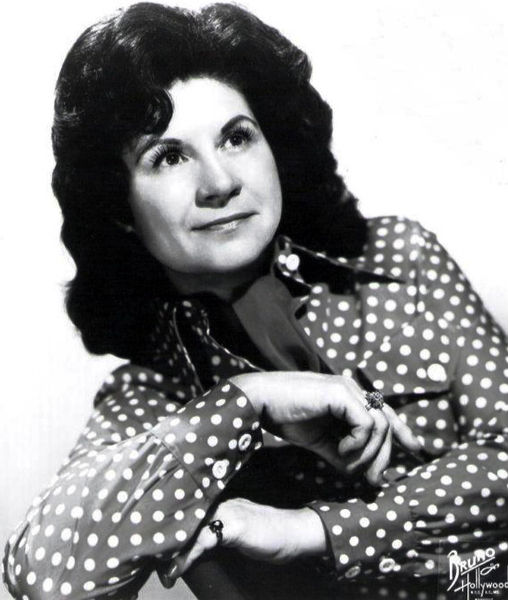By Bob Allen
A Southern Baptist seminary professor and country-music devotee is challenging eulogies portraying recently deceased singer/songwriter Kitty Wells as a feminist icon.
Russell Moore, dean of the school of theology and vice president for academic administration at Southern Baptist Theological Seminary in Louisville, Ky., blogged July 18 that Wells, who died July 16 from complications of a stroke at age 92, was indeed a “feminist” in the sense that she paved the way for later artists who demanded that women be treated with dignity and respect, but headlines like one in Atlantic that described her as the “feminist country godmother to Britney Spears” are over the top.
 The Atlantic’s tribute recalled controversy over Wells’ first hit and signature song, “It Wasn’t God Who Made Honky Tonk Angels” written as a rejoinder to a line in Hank Thompson’s “Wild Side of Life.” Radio programs including the Grand Ole Opry banned it, because lines like “Too many times married men think they’re still single; that has caused many a good girl to go wrong” were considered too outspoken for 1952.
The Atlantic’s tribute recalled controversy over Wells’ first hit and signature song, “It Wasn’t God Who Made Honky Tonk Angels” written as a rejoinder to a line in Hank Thompson’s “Wild Side of Life.” Radio programs including the Grand Ole Opry banned it, because lines like “Too many times married men think they’re still single; that has caused many a good girl to go wrong” were considered too outspoken for 1952.
The Atlantic’s Jonathan Bogart said the song went on to “be recognized as a proto-feminist achievement,” paving the way not only for future country stars like Loretta Lynn, Dolly Parton and the Dixie Chicks but also rock pioneers like Janis Joplin, Joan Jett and Britney Spears.
Moore, however, in a blog titled “The Complementarian Vision of Kitty Wells” argued that the so-called Queen of Country Music was no Gloria Steinem or Betty Friedan. Moore, who records a podcast on theology and country music called “The Cross and the Jukebox,” said Wells “wasn’t attempting to tear down the complementary harmony of the husband-wife union” but instead opposed a particular kind of male headship that is harmful to families.
“Wells was calling men to the very traditional complementarity they said they believed but had abandoned,” Moore contended. “What Wells was protesting wasn’t the kind of self-sacrificial headship found in the masculine imperative given by Jesus and his apostles. It was instead a protest against the kind of pagan patriarchy we see in every culture and at every age. This patriarchy asserts a kind of male headship that’s based on power and privilege.”
Moore is listed as chairman of the board of directors for The Council on Biblical Manhood and Womanhood, a group formed in 1987 by pastors and scholars concerned about the influence of feminism not only in culture but in the evangelical church. They produced a set of beliefs called the Danvers Statement proclaiming that male headship is part of God’s design and not the result of human sin. That laid groundwork for a controversial amendment calling for wifely submission added to the Baptist Faith and Message in 1998.
Moore said what Kitty Wells sang against is still worth protesting, even in the church.
“We live in a world where male Darwinian power is everywhere worshiped, even in a culture that deems itself ‘feminist,’” he said. “Women are degraded in a billion pixels on the Internet and in objectifying corporate advertising and in the abandoned single mothers struggling to eke out a living for the children of some long-gone man.”
“Kitty Wells is hardly the musical godmother of Britney Spears or the hyper-sexualized singers of the past generation,” Moore said. “She was just the opposite. She didn’t want to celebrate honky-tonk angeldom. She didn’t want to be a honky-tonk angel at all. She wanted to be a wife, a lover, a woman. She wanted human dignity, and a man who was worthy of the name. She wanted a union that was bone of bone and flesh of flesh.”
Prior to her death, Wells was a member of the Goodlettsville Church of Christ in Tennessee. She and country music star Johnnie Wright, her husband of more than 70 years who died last September, were longtime supporters of Goodpasture Christian School, a church-related, college-preparatory day school that enrolls about 1,000 students from a six-county area in middle Tennessee.
